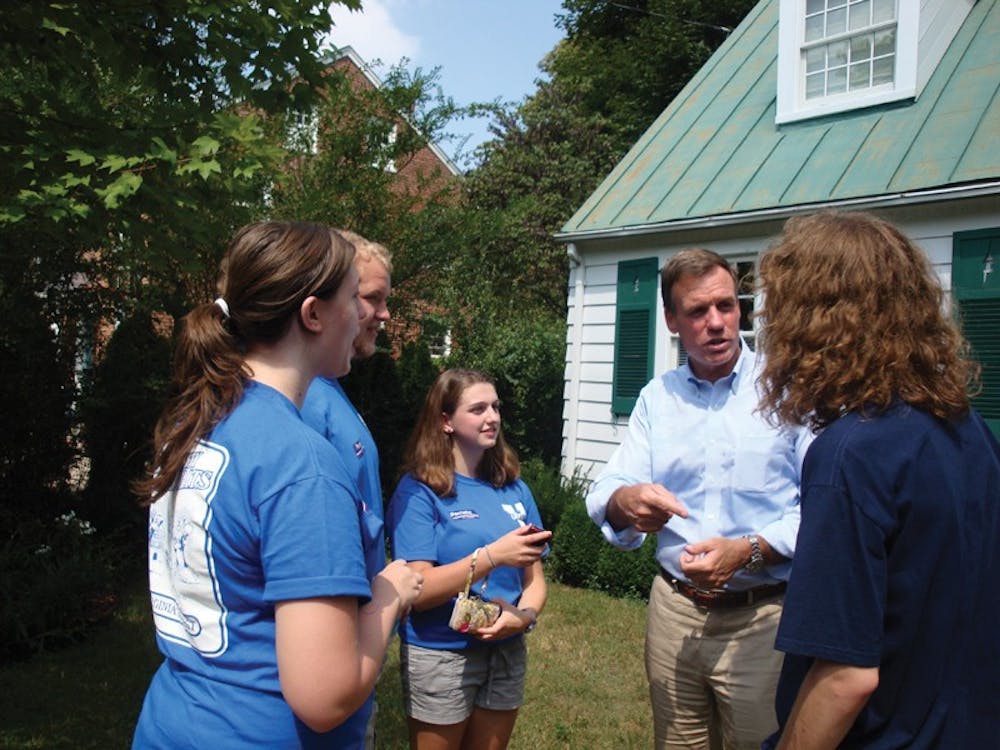Former Gov. and current U.S. Sen. Mark Warner, D-Va., visited the University yesterday for a town-hall style discussion about education reform as the first guest in the Education School's newly constructed Bavaro Hall.
Although Warner admitted to being "five years absent from being current" on education policies since leaving his role as governor, he drew from his previous experiences to discuss education issues and fielded suggestions from Education faculty members and students about the federal government's role in education policy.
Warner noted that Advanced Placement courses and community college dual enrollment programs may be one way to cut education costs for high-school students preparing for college by putting these resources toward funding the beginnings of higher education programs.
"What we try to do in Virginia, which has had some success, was to say, 'We're not going to give you a free two years of college,' but what we should be able to do is guarantee in every high school in Virginia [that] if you do well - we should at least be able to knock off one whole semester of college while you're still in high school," he said, noting the failure of programs in other states that have promises two-year merit scholarships to students in the past."
One challenge in this plan, which he described as a "cheap and dirty" secret of AP and dual enrollment programs, is getting colleges to accept credit from these sources, a topic he discussed with former University President John T. Casteen, III. An added benefit, Warner said, was giving high-school seniors the opportunity to finish college requirements during their senior years, "which too often for students becomes kind of a wasted year and a goof-off year."
Warner also noted another way to cut higher education costs - one, perhaps, not discussed as often.
"This is probably a heresy at an education school, but ... a four-year education may not be the best choice for every student," he said. "Over half the jobs that are being created do not require a four-year education."
Instead, Warner's focus historically has been on accrediting technical school programs and has continued promoting the effort to do so.
First-year Graduate Education student Matt Deegan attended to hear Warner's thoughts about charter schools and weakened federal support for state education. Deegan cited education cuts in Charlottesville as "an example of how the recession has effected education in a very real way."
Dwindling federal support for these efforts and others, however, is a less favorable ongoing trend, Warner said.
"I think as history is written, the 2006 to 2007 [years] will be looked back at [as] the glory days," he said, when federal education funding could adequately pick up the slack for state budget deficiencies.
But education could play another role in cultivating America's workforce, he suggested, noting that although many employment opportunities are not returning, innovation capital is where the future for the United States lies.
"Your job," he told the audience, "whether you're a teacher or education policy maker, is that we get it right."
Ashley Pinney, first-year graduate Education student, could relate to many of the issues Warner and attendees raised.
"It was really interesting being a student from the Curry school because he brought up a lot of issues we bring up in class," she said.
Pinney believes that Warner's personal life - namely, his three children - will encourage him to prioritize education throughout his career.
"He, being a man with three kids, can't be away from that," she said.







